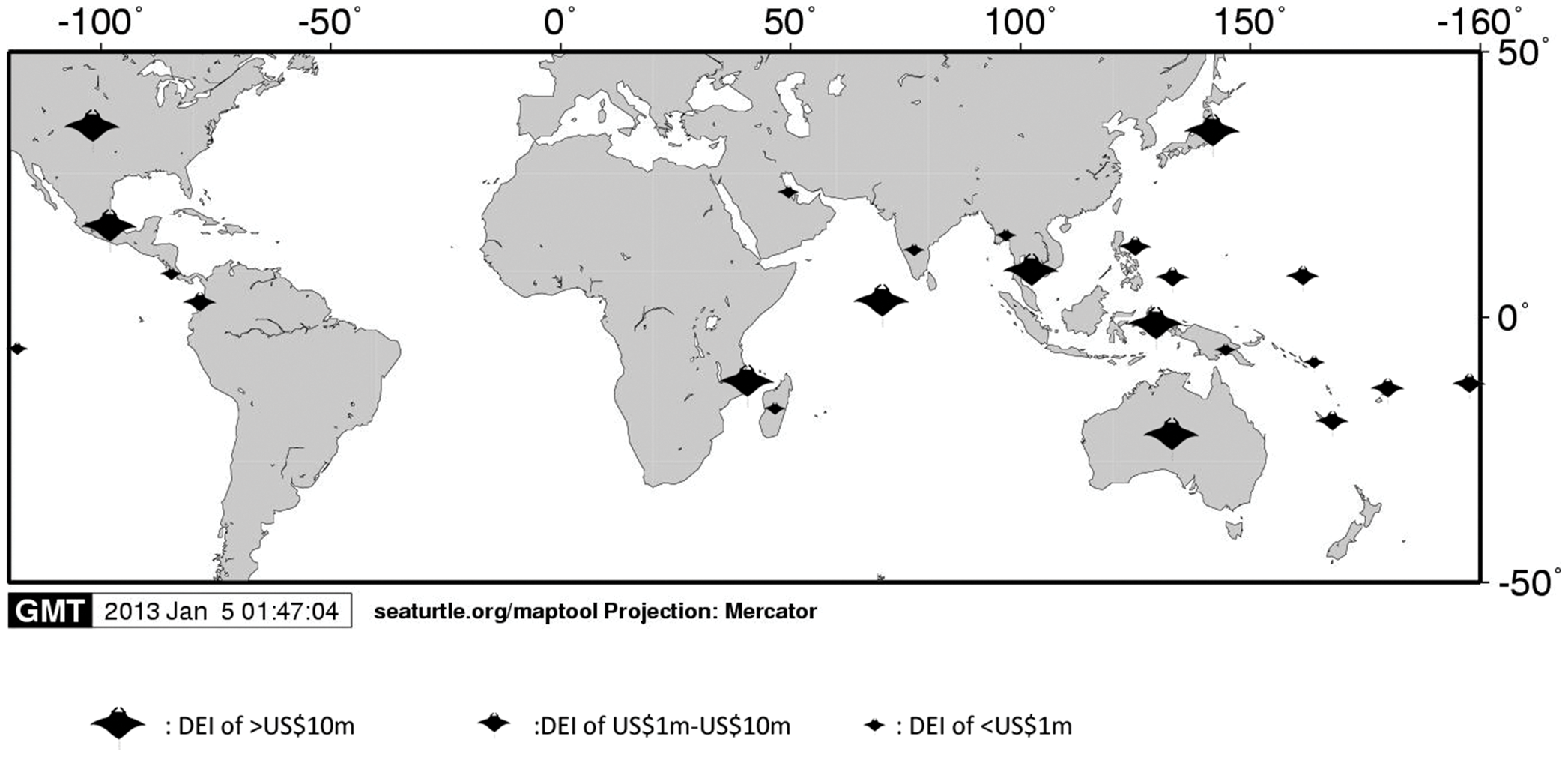My research for this article didn’t start well. I typed in “Does Responsible Tourism Work” in google, and got precisely one result. What could this mean? Had no one ever asked the question about the impacts of responsible tourism online before? And whether they have or not, where are all the answers?
As it happens, the answers are out there, growing all the time. They are just not neatly labelled or gathered together in one place. Which is something we need to change. So to start the ball rolling, here are the results from studies from just the last 12 months:
1 – Sharks ecotourism growing fast worlwdide
Researchers at the University of British Columbia compared the economic value of shark ecotourism worldwide to the value of sharks landed in shark fisheries. They found that shark watching tourism generates over US$314 million per year, a figure that could double in the next twenty years if tourism trends continue. The study finds that shark watching attracts 590,000 tourists and supports more than 10,000 jobs each year.

2 – Shark tourism worth more than fishing in Palau
The Australian Institute of Marine Science studied the economic benefits of Palau’s shark-diving industry and found that its worth far exceeds that of shark fishing. In fact, the estimated annual value to the tourism industry of an individual reef shark that frequents these sites was US$179,000 or US$1.9 million over its lifetime. In contrast, fishing a single reef shark would only bring an estimated US$108.
 3 – Protected areas lead to decreased poverty in Costa Rica
3 – Protected areas lead to decreased poverty in Costa Rica
Responsible tourism efforts in Costa Rica have led to decreased poverty levels in regions near protected parks and natural areas, according to a new study. The study in the Proceedings of the National Academy of Sciences into the impacts of the many protected areas that Costa Rica has set aside the preserve its natural heritage, found that poverty has reduced in communities surrounding the protected areas and that nearly two-thirds of the poverty reduction in the regions can be attributed to opportunities afforded by tourism.
 4: Bear watching pays better than hunting them in British Columbia
4: Bear watching pays better than hunting them in British Columbia
A new study on the comparative economic benefits of bear watching and bear hunting in British Columbia’s Great Bear Rainforest found that bear-related tourism generates “12 times more in visitor spending than bear hunting and over 11 times in direct revenue for BC’s provincial government.”
 5: Logging income replaced by tourism in Sabah
5: Logging income replaced by tourism in Sabah
Revenue from tourism has replaced the loss of income that resulted when the government of Sabah cancelled logging concessions in order to protect its forests, a new study has shown. Sabah used to earn earn up to RM2 billion a year from the industry, but 12 years ago they hugely reduced logging concessions so that today the industry is only worth 100 million a year. Meanwhile, tourism last year brought in RM5.7 billion in earnings.
 6: Manta ray tourism worth much more than fishing
6: Manta ray tourism worth much more than fishing
A study on The Global Economic Impact of Manta Ray Watching Tourism found that while the demand for manta ray gill plates raises US$5M globally, is greatly outweighed by the estimated US$140M raised annually through manta ray tourism. In Indonesia, revenue to fishermen from manta gill plates is estimated at roughly $400,000, while manta tourism brings in over $15 million in revenue to communities that can continue year after year without depleting manta populations.”
This is just the results of six studies from the last 12 months – I am sure there are many more. Which is why if anyone knows of other studies that quantify the impacts of responsible tourism, please tell us about them in the comments below. To help responsible tourism grow as fast as possible we need to show people not just that it is the ‘right’ thing to do, but that it is the economic option too.

